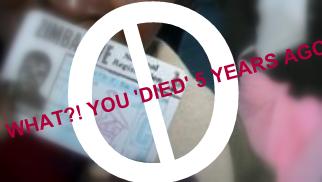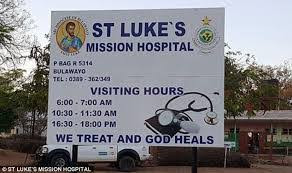
LAST week the sad story of John Mhlanga who had been battling to get national identification documents since 2008 after he was wrongfully declared dead, came to an end following publicity by this newspaper.
Sunday Southern Eye Editorial
Mhlanga, to his shock, was told by the Registrar-General that he could not replace his lost ID because he had been recorded dead and, therefore, evidence was needed to show that he was indeed alive.
His ordeal was taken by this newspaper until he was finally issued his particulars a week ago. If it was not for this newspaper, Mhlanga would still be without an ID.
Southern Eye took up Mhlanga’s case to ensure that he got redress from the authorities and now he can take part in the forthcoming elections as he is able to register as a voter.
Part of the agenda of this newspaper is to play a watchdog role.
Mhlanga would still be languishing in the wilderness like millions of other Zimbabweans desperate to acquire ID documents to exercise their democratic right to vote, if we had not taken his case.
As the authentic voice of the people, we are duty-bound to push authorities to ensure that citizens are assisted to get services from public offices and civil servants.
- Chamisa under fire over US$120K donation
- Mavhunga puts DeMbare into Chibuku quarterfinals
- Pension funds bet on Cabora Bassa oilfields
- Councils defy govt fire tender directive
Keep Reading
But this can only happen if our government realises the imperative and vantage position that the media is a conduit for the enjoyment of other rights that are enshrined in the Constitution and the Bill of Rights.
As the market place of ideas, the media triggers national discourse on topical issues that affect the nation State at any given time as we seek to encourage the democratic principles of accountability, transparency, honesty, responsiveness, national service and ethos of hard work.
On the same token, if the government is to address the hygiene factors such as the repeal of nefarious laws ranging from the Access to Information and Protection of Privacy Act, Public Order and Security Act, Broadcasting Services Act and the Interception of Communications Act, among others, it will enable the media to maintain the checks and balances and keep the national agenda in motion.
It is more critical as the country awaits national elections that the government sanitises the media operating environment to enable newspapers to perform their duties unhindered.
Mhlanga’s story is an apt example that the media is not there to destroy, but to build societies.
There are many people in his predicament and we are confident that in our small way we have done something to highlight their plight.










